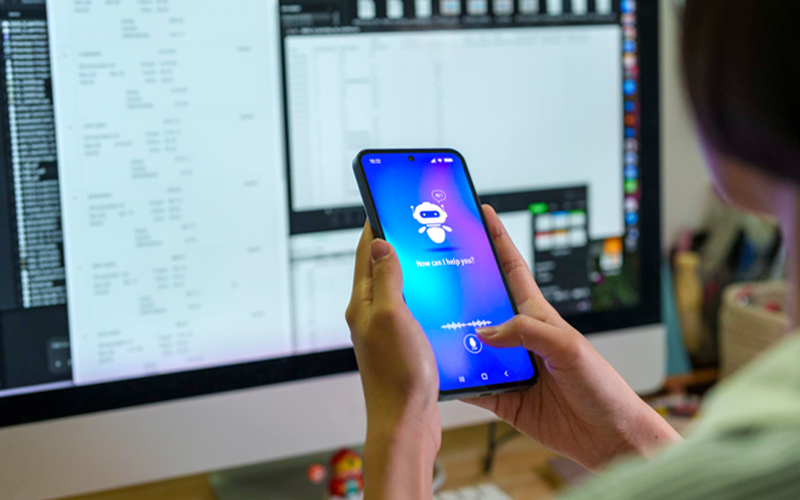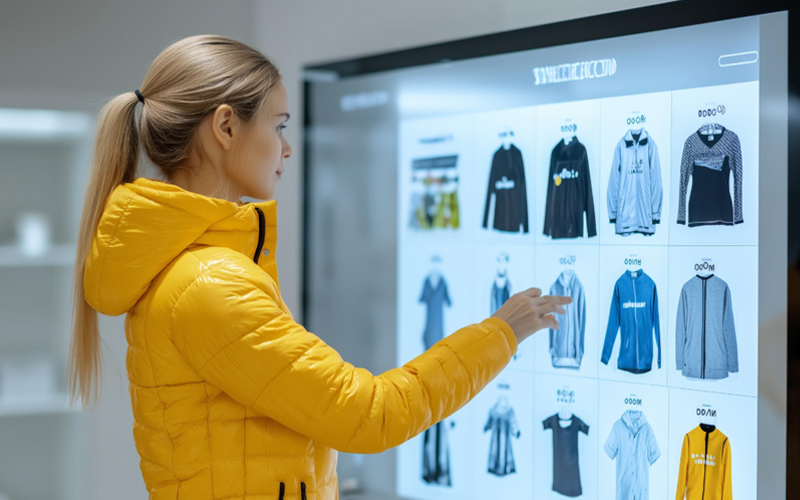Generative AI, often referred to as genAI, has emerged as a transformative force reshaping various facets of business operations, employee workflows, and consumer-brand interactions. While still in its early stages, there are many questions about how it's used, its risks, and its impact. Many Consumer Packaged Goods (CPG) brands are already experimenting with genAI in their workflows and refining production systems. It's not just about CPG analytics anymore; genAI has gone beyond that, making company-consumer interactions smoother and speeding up product development significantly, lightening workloads along the way.
Given these advancements, understanding and embracing genAI have become pressing priorities for CPG leaders. Given the benefits, the Gen AI industry is set to grow at a CAGR of 34.2% to reach USD 255.8 by 2033.
In this article, we explore the impact of generative AI in the CPG industry, its risks and rewards, and ways CPG leaders should leverage the technology.
How is Gen AI impacting the CPG industry?
Gen AI can grow and progress rapidly through its hype cycle, impacting the CPG industry through faster and cheaper marketing, automated contracting, driving sales, and changing the way businesses do sourcing. Here are some of the ways CPG businesses can use Gen AI –
- Faster time-to-market
- Value addition
- Employee enablement
By using Gen AI, businesses can augment the product design process. Generate unique designs and labelled images of features to streamline product development and commercialisation. As the design cycle reduces, customer satisfaction and profits increase.
Gen AI integrates with chatbots to revolutionise customer service and reduce the time spent on customer calls by hundreds of hours. It also fast-tracks the reporting process and brand positioning through better product descriptions and categorisation.
Help the employees prioritise daily responsibilities, access onboarding material, and receive automated communication to reduce the risk of non-compliance. This also deals with employee turnover and training to improve in-store efficiency.
It is not a one-size-fits-all solution
Gen AI using large language models (LLMs) speeds up information customisation for CPG businesses. Some solutions focus on improving strategic insights others focus on control and customisation.
The key takeaway is that there is no one-size-fits-all solution. Existing LLMs provide a quick solution by speeding up the process using technology. Developing a custom LLM helps you get targeted results specific to your business.
The risk vs reward of Gen AI in the CPG industry
According to a survey, 40% of CPG leaders are successfully leveraging Gen AI, with 1-in-5 reporting significant improvement in the way their business operates. With such a scale of benefits comes the need to act quickly and stay ahead of the competitors. Newer Gen AI-powered tools such as shopping assistants, customer service chatbots, and demand-planning applications are helping CPG businesses.
However, 67% of CPG leaders currently find it challenging to develop and implement an effective AI strategy. Since the implementation of Gen AI takes a budget, businesses must see an opportunity cost quickly. This is where an experienced Gen AI implementation partner becomes important.
How should CPG leaders leverage Gen AI?
With next-gen algorithms, CPG businesses can hyper-personalise customer experience, predict trends, and create targeted marketing campaigns. It helps analyse market data and predict customers’ choices. Several key takeaways for CPG leaders are –
Personalised customer experience
Delve into the nuances of data to extract advanced insights about customer preferences, needs, and behaviour. Use this data to tailor marketing strategies and product offerings. Transform the transactional nature of customer interaction into a personalised connection.
Change the immediate shopping event into long-term loyalty and trust by using Gen AI as a building block for customer relationships.
Reduce costs by streamlining operations
Extend the predictive analytics to automation to reduce the costs and improve market responsiveness across the supply chain. Anticipate the market demand to deliver products efficiently, identify bottlenecks, mitigate risks, and predict potential disruptions.
Revolutionise product development
Leverage market insights to quickly ideate, prototype, and refine products, accelerating the lifecycle. Identify opportunities and consumer behaviour data for innovation with speed and accuracy. Reduce the time-to-market by up to 50% and increase the research and development efficiency by over 30%.
Data-driven decisions
Digest and analyse large data sets to identify hidden patterns and transform them into strategic foresight. The agility in decision-making encompasses the following steps –
- Data collection
- Processing and analysis
- Insight generator
- Strategic decision support
- Implementation and feedback
Handling ethical and privacy concerns
CPGs must work with their Gen AI technology supplier to implement guardrails and prevent fake identities, images, and content. The Gen AI solution must be fair, non-discriminatory, accountable, and transparent. Adhere to laws such as GDPR and CCPA for data protection and champion privacy and transparency. According to research, 62% of consumers trust businesses whose AI interactions are ethical, increasing revenue by up to 6.4%.
Given the benefits, 16% of businesses have fully integrated and 45% of businesses have partially integrated Gen AI in their CPG operations.
How can Infosys BPM help?
At Infosys BPM, we understand the evolving needs of the CPG sector in adopting transformative technologies like generative AI. Our tailored business process management solutions and generative AI systems are designed to address the unique challenges faced by CPG companies as they navigate this dynamic landscape.
With our comprehensive suite of BPM solutions, we empower organisations to maximise operational efficiency, enhance visibility, and foster collaboration across departments. Our integrated workflow for service lifecycle management covers a wide range of aspects, including service configuration, rollout support, supply chain mapping, and churn analytics.
By partnering with Infosys BPM, companies can unlock new opportunities for innovation, streamline their operations, and accelerate revenue generation in the rapidly evolving CPG industry. Explore our offerings today to discover how we can support your journey towards leveraging generative AI and driving sustainable growth.








